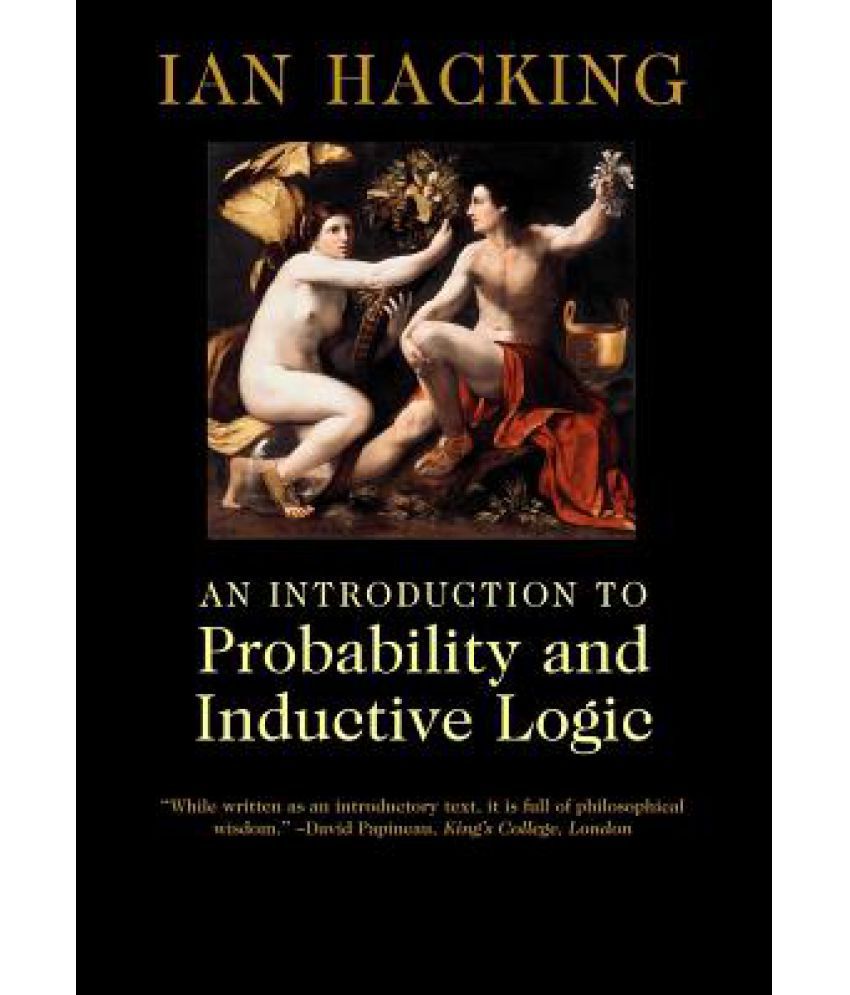Something went wrong. Please refresh the page and try again.
Something went wrong. Please refresh the page and try again.
Notifications can be turned off anytime from settings.
Item(s) Added To cart
Qty.
Something went wrong. Please refresh the page and try again.
Something went wrong. Please refresh the page and try again.
Exchange offer not applicable. New product price is lower than exchange product price
Please check the updated No Cost EMI details on the payment page
Exchange offer is not applicable with this product
Exchange Offer cannot be clubbed with Bajaj Finserv for this product
Product price & seller has been updated as per Bajaj Finserv EMI option
Please apply exchange offer again
Your item has been added to Shortlist.
View AllYour Item has been added to Shopping List
View AllSorry! An Introduction to Probability and Inductive Logic is sold out.


You will be notified when this product will be in stock
Brief Description
This is an introductory textbook on probability and induction written by one of the world's foremost philosophers of science. The book has been designed to offer maximal accessibility to the widest range of students (not only those majoring in philosophy) and assumes no formal training in elementary symbolic logic. It offers a comprehensive course covering all basic definitions of induction and probability.
Learn More about the Book
This is an introductory textbook on probability and induction written by one of the world's foremost philosophers of science. The book has been designed to offer maximal accessibility to the widest range of students (not only those majoring in philosophy) and assumes no formal training in elementary symbolic logic. It offers a comprehensive course covering all basic definitions of induction and probability, and considers such topics as decision theory, Bayesianism, frequency ideas, and the philosophical problem of induction. The key features of the book are: * A lively and vigorous prose style* Lucid and systematic organization and presentation of the ideas* Many practical applications* A rich supply of exercises drawing on examples from such fields as psychology, ecology, economics, bioethics, engineering, and political science* Numerous brief historical accounts of how fundamental ideas of probability and induction developed.* A full bibliography of further reading Although designed primarily for courses in philosophy, the book could certainly be read and enjoyed by those in the social sciences (particularly psychology, economics, political science and sociology) or medical sciences such as epidemiology seeking a reader-friendly account of the basic ideas of probability and induction. Ian Hacking is University Professor, University of Toronto. He is Fellow of the Royal Society of Canada, Fellow of the British Academy, and Fellow of the American Academy of Arts and Sciences. he is author of many books including five previous books with Cambridge (The Logic of Statistical Inference, Why Does Language Matter to Philosophy?, The Emergence of Probability, Representing and Intervening, and The Taming of Chance).
Review Quotes
1. "Hacking's textbook is likely to become the standard for inductive logic courses. He writes simply, in a lively style, without oversimplification. it starts at the beginning, and throughout uses only the simplest calculations. As it goes on, tools including P-values, confidence intervals, expected values, the basics of decision theory, and Bayesianism are introduced with mathematical honesty and refreshing philosophical scrutiny. Lively and original examples drawn from everyday life create the appropriate context to prepare students to think critically about the barrage of statisical arguments that confront us on a daily basis. From Madison Avenue's "4 out of 5 dentists choose..." to highly sophisticated economic modeling we poll and make prophecies based on statistical information regularly. Hacking's textbook sheds much needed light on the mystique reasoning." Katherine van Uum, Grinnell College, Iowa
2. 'This is, as intended, a very introductory text in probability and inductive logic.' Zentralblatt fur Mathematik
3. 'Hacking's book excels ... especially in the practical, concrete examples. It uses minimal mathematics and presumes no acquaintance with symbolic logic. It is well suited for graduate or advanced undergraduate courses in inductive logic or related areas (such as philosophy of science or methodology courses in particular empirical sciences). The book gives a nice introduction to inductive logic.' Harry Gensler, Times Higher Education Supplement
4. "While written as an introductory text, it is full of philosophical wisdom. Moreover, this is wisdom that most students of philosophy need but find very hard to acquire. Hacking explains all the basic ideas of probability theory, the philosophical puzzles they raise, the standard lines of response, their strengths and weaknesses. He writes with the authority of someone who has helped form the debates and understands everything properly, but at the same time he gives a fair hearing to all positions worth taking seriously. At some point in the career of most philosophy students, graduates and undergraduates alike, they read stuff, which uses probalistic ideas and turn to their teachers for guidance. I can imagine that the teachers' automatic response for some decades to come will be to send these students to Hacking." David Papineau, King's College, London
The images represent actual product though color of the image and product may slightly differ.
Register now to get updates on promotions and
coupons. Or Download App